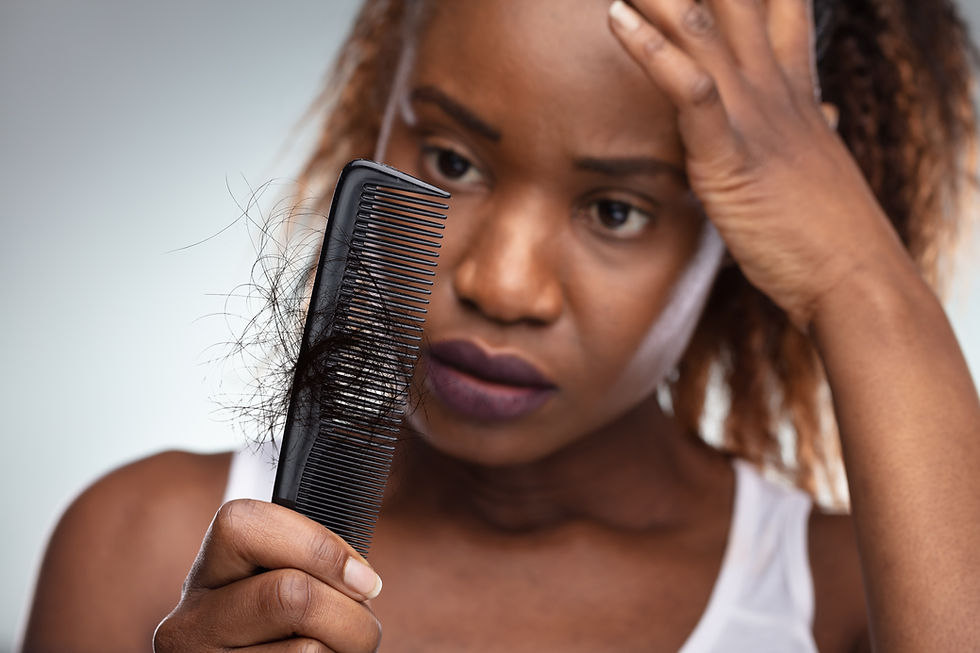Buzzwords Skincare Companies Use to Sell Their Products: Know What They Really Mean
- Timeless Youth

- Dec 21, 2024
- 3 min read
Aging gracefully is a high priority for many, and skincare and cosmetics companies know the buzzwords that people are looking for. They include them in their advertising and packaging to make the consumer feel better and want to purchase their products. However, many of them can rarely follow through on their claims and some buzzwords seem downright dishonest!
In your journey to fight signs of aging, you will see several buzzwords that sound wonderful, but be aware of those listed below.
Natural and Organic
At the end of the day, we all want our skincare routine to be as natural and unprocessed as possible. We want to get rid of harsh chemicals, fillers, and ingredients that we need to Google to know what they are. However, keep in mind that the terms “natural” and “organic” are not regulated (See Health Canada statement here and the FDA's position here.) This is similar to supplements that are also not regulated and can contain heavy metals and more. Also, be careful of what stabilizers they use in their products. Often, they will throw chemicals in there to prolong shelf life.
Anti-Aging
"Anti-aging" is a buzzword that is everywhere! It refers to products or practices marketed as capable of slowing down or reversing the visible signs of aging. However, companies can only claim "anti-aging" effects on their products if they have substantial scientific evidence to support those claims. Also, they must avoid making misleading statements that suggest they can completely reverse the aging process. Why? Because this could be considered a drug claim by regulatory bodies like the FDA. If they do claim to reverse aging, the companies must have scientific data to back it up. Thankfully, the FDA closely monitors anti-aging claims to prevent companies from making exaggerated or unsubstantiated statements about their products.
Dermatologist-Tested/Dermatologist-Approved
This is a big one. Being “dermatologist-tested” basically means nothing. There’s no standard or industry-level definition for that claim. No research has been done on who these dermatologists are or their credentials. Also, a “dermatologist-tested” product written on the packaging only means it was tested for skin tone, skin sensitivity, safety, or some other quality. It doesn’t mean that the product met a specific standard— it just means that it was tested. No lab results or control group data is rarely produced.
What about the buzzword “dermatologist-approved”? A “dermatologist-approved” skincare product is a product a doctor would recommend to their patients. Although dermatologist-approved is considered more meaningful than dermatologist-tested, that doesn’t mean that an approved product is a good choice for everyone. It simply means that one or more doctors gave their opinion on the product.
Clinically Proven
This is a tricky one because again there is no standards or industry level definitions. Any moisturizer can be “clinically proven” to smooth wrinkles... just by puffing up the skin with water in a lab!
In reality, the term “clinically proven” means that consumers have tried the product. Yes, it is that simple. In fact, according to the American Academy of Dermatology Association, it simply means that consumers tried the brand and experienced the desired results.
So, when you see that buzzword, ask yourself if clinically proven means consumer tested. It is important to know that clinically proven does not mean clinical trials were necessarily run. However, if you want to learn more about any clinical studies done on a product, go to their website to learn more.
Free Of
Companies love to list everything that their products don’t contain. You’ll see things like “paraben-free” or “sulfate-free.” But some of these products don’t contain these ingredients because they are not needed in the product. For example, a lot of shampoo companies claim their products are “silicone-free.” Most shampoos never contain silicones, to begin with! With these companies, maybe study their ingredient lists to see what might be hiding.
Conclusion
The bottom line is don’t take a company’s claims to be gospel. Really, look at the ingredients. Consider visiting their website to see if there are any studies or data that can back up what they are advertising.
Sources:
Timeless Youth Empowerment™, led by Dr. Faruqi, supports women over 40 and 50 to take control of their health, vitality, and aging journey. We provide education in hormonal balance, anti-aging strategies, and symptom relief for menopause and midlife changes. We address symptoms like fatigue, weight gain, and sleep issues, helping women regain energy, confidence, and a youthful glow by guiding women through midlife transitions with natural and medical solutions backed by science.
Disclaimer: The content in this blog is not intended to be a substitute for professional medical advice, diagnosis, or treatment. Always seek the advice of your physician or other qualified health provider with any questions you may have regarding a medical condition.








Comments